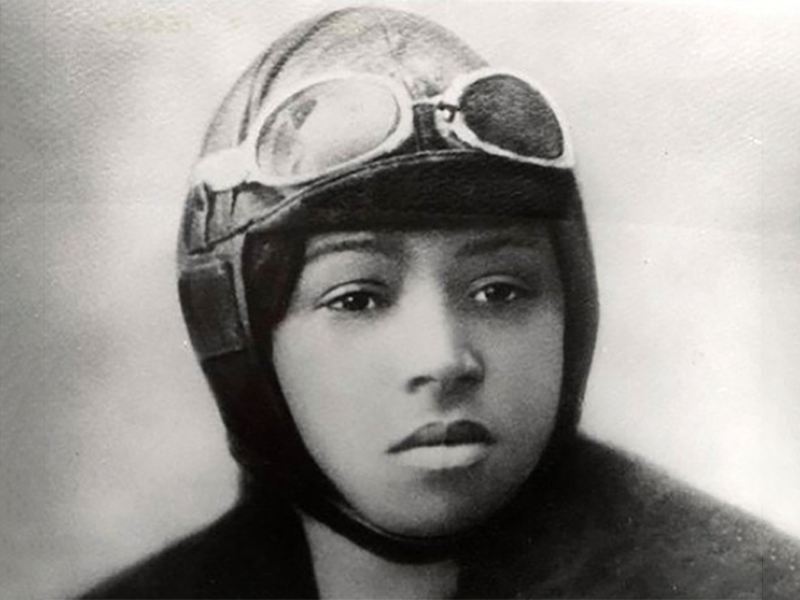Bessie Coleman (1892-1926) was the first African American and first Native American woman pilot. Born in Texas in 1892 during the age of Jim Crow segregation and overt racism, she was refused admission into every U.S. flying school because of her ethnicity. Rather than let that deter her, she learned French so she could go to aviation school in France, where there was far less prejudice against people of color.
In 1921, Coleman received her international pilot's license from the Fédération Aéronautique Internationale. She returned to the U.S. and toured the country giving flight lessons, performing in shows and encouraging African Americans and women to learn how to fly. She refused to perform anywhere that segregated or discriminated against African Americans.
Coleman died on April 30, 1926, as a passenger on a flight in Jacksonville, Florida.
The United States honored her by putting her on a 1995 U.S. postal stamp. She will soon be part of the United States Mint's program for American Women Quarters. Read more about Coleman on PBS's American Experience.
This vignette was produced by the Chancellor's Commission on Women.
Contacts
Charlie Alison, executive editor
University Relations
479-575-6731,
